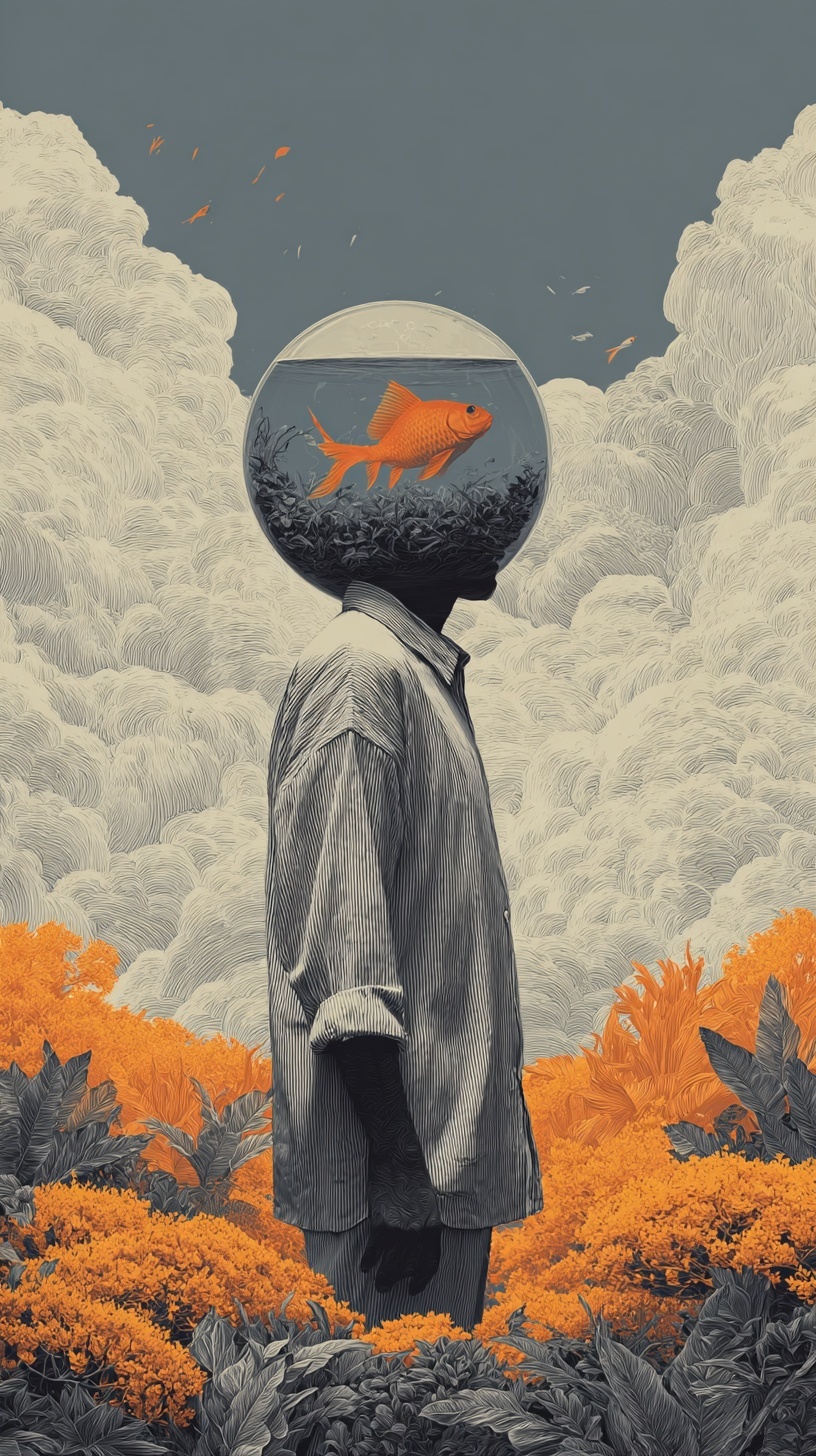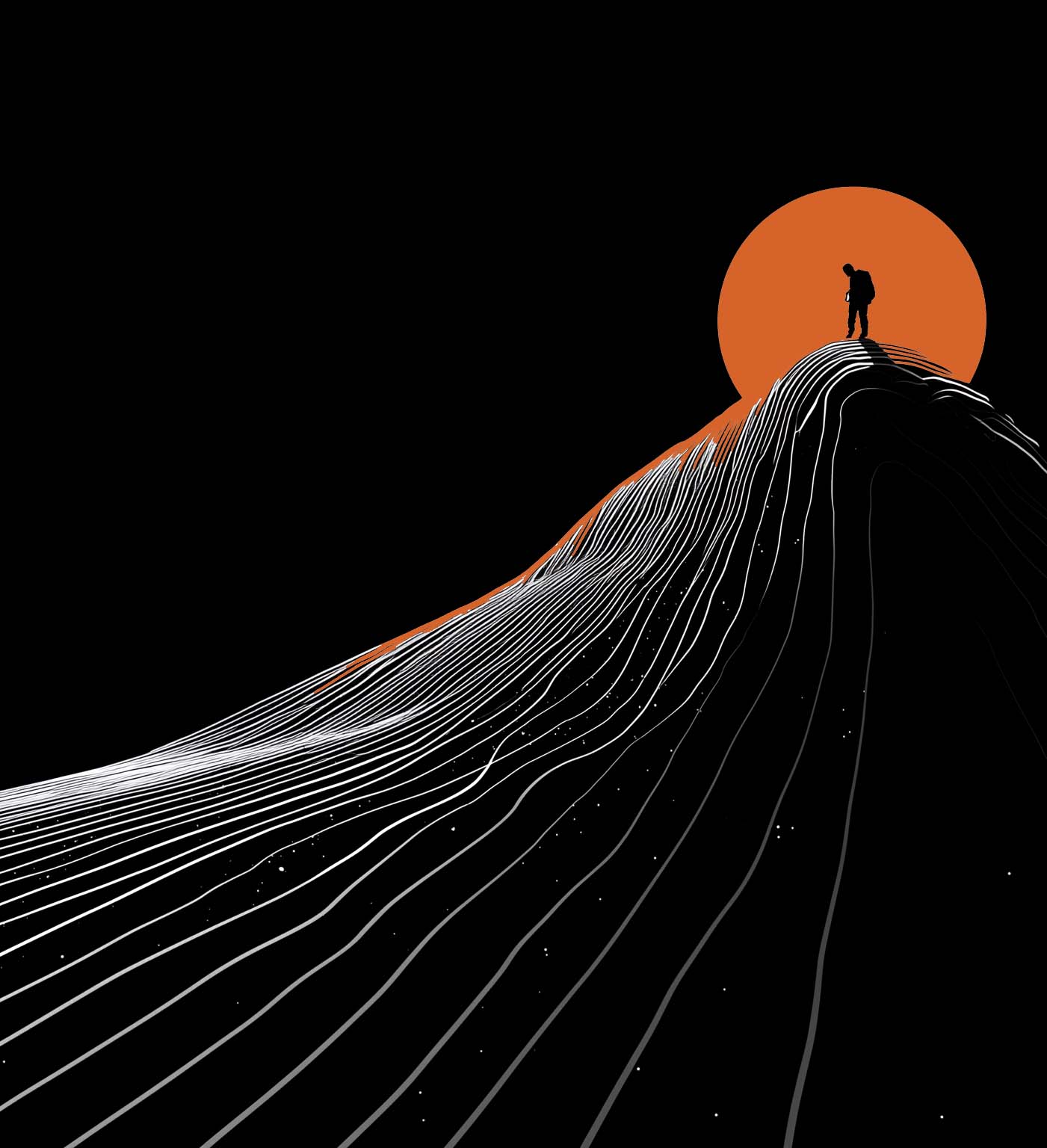
Most people don’t have a flexibility problem; they have a control problem.
We like to think life should unfold in a predictable and smooth way. That our hard work should lead to success, our relationships should remain unchallenged, and the world should operate within the rules we’ve created in our minds.
There are those who are constantly looking for a life of ease, where problems don’t exist.
But life doesn’t work like that.
And when reality challenges our beliefs, when something unexpected disrupts our plans, most people don’t bend, they break.
When Your Worldview Gets Shaken
Life isn’t fragile, but the way most people approach it is.
Think about the last time something didn’t turn out the way you wanted it to:
- A close friend said something you didn’t expect or didn’t want to hear.
- A business deal you thought for sure you had, slipped through your fingers.
- Or something you believed to be 100% true, turned out to be false.
How did you react?
Did you adapt?
Did you fight it? Resist it? End up getting frustrated and going in a spiral?
And this is when most people double down when their world view is challenged. The need to be right overtakes them and they hold on tighter to their belief.
And it’s in these very moments that we choose to be rigid; we are taking one step closer to breaking.
Be Like Bamboo, Bend, Don’t Break
The strongest people aren’t the ones who resist change, they’re the ones who learn to adapt.
There’s a misconception that resilience means "holding strong" against adversity. But real strength doesn’t come from resisting change; it comes from using it. Staying open and flexible with it.
And being flexible doesn’t mean being passive, either.
It means being adaptable.
Curious.
It means developing the ability to shift perspectives, reframe problems, and move forward no matter what’s thrown your way.
But why does this matter?
Because if you can train yourself to remain flexible in the face of uncertainty, life stops feeling like it’s happening "to" you and starts feeling like it’s happening for you.
The more energy you put into trying to control your ideas and what you think about, the more your ideas end up controlling you.
Antifragile - Nassim Nicholas Taleb
Become Antifragile
I remember the first time I heard this term “Antifragile” by Nassim Nicholas, I knew that there was something profound within it (I highly recommend his book by the way).
We live in a world we don’t truly understand and don’t fully comprehend why we are here.
Yet we have created worldviews of how things should be to give ourselves control, to bring order to the disorder.
Some people crumble under the pressure of this disorder. While others become stronger because of it. What’s the difference?
"Rigid people resist change." They hold onto the past and struggle when the world doesn’t match their expectations or viewpoints.
"Flexible people adapt." They face challenges with an openness and curiosity, an opportunity to learn and grow.
Think of your mind like a muscle. If you never expose it to resistance or different viewpoints, it weakens.
If you overload it, it snaps.
But if you apply progressive overload, increasing challenges or exposing it to change at a manageable rate, it becomes stronger than before.
Let’s demonstrate with an example.
Two entrepreneurs starting a new business from scratch, both have the same business knowledge and desire to succeed.
1) One builds a business hoping for smooth success. Yet when the first challenge strikes, a low close rate on sales inquiries. They start to panic, make emotional decisions and blame external factors for the results. The business slowly starts to unravel.
2) The other has a vision, but expects volatility. When close rates on sales come in lower than expected, he adjusts strategies quickly, takes ownership of the situation, and becomes curious about how to get better in that area. Who can I learn from, who is the expert in this area, what am I not seeing? They use every setback as feedback, an opportunity to get better.
Same problem. Different response. Drastically different outcomes.
A loser is someone who, after making a mistake, doesn’t introspect, doesn’t exploit it, feels embarrassed and defensive rather than enriched with a new piece of information, and tries to explain why he made the mistake rather than moving on.
- Nassim Nicholas Taleb
That is why sport is such a good teacher for us. If viewed from the perspective of game theory and not that you have to win at all costs mentality, there are so many life lessons from it.
I know that when I was younger, I had early success in sports, and as I got older, I expected it to continue that way.
Big fish, small pond.
Once I started competing against the best, it was about winning no matter what. And if I didn’t win, it was somebody else’s fault or out of my control.
I didn’t build up the resilience to losing at a younger age to be curious and learn from it; every match became life or death.
And life became a rollercoaster, riding the highs and fearing the lows.
But I was fortunate enough to be surrounded by older friends and good coaches who helped guide me away from viewing the game that way and helped me become more flexible at the end of my career.
Train Yourself to Stay Flexible
This is a process, an inner journey that will test your personal edges.
Detach from Certainty
Stop expecting life to follow a script. Recognize that change is the "only" constant. When things don’t go as planned, feel the discomfort of it. Don’t run from it or try to mask it with society's distractions. Ask yourself: “What’s the opportunity here?”
Use Discomfort as Training
Start exposing yourself to small stressors regularly. Cold showers, difficult conversations, new experiences, or different view points on life. Anything that forces you out of the comfort of the way you think it “should be”, this will help you build that mental elasticity.
Reframe Every Challenge
Instead of asking, “Why is this happening to me?” ask, “Whats on the other side of this for me?” This can be very difficult in the moment, but that is the only way we can stop playing the victim in life when things aren’t going our way. That might be triggering for some, but the truth is, we are either taking responsibility for the things that happen in our life or playing the victim.
Expect some of your beliefs, routines, and expectations to be shattered. When they are, instead of resisting, use it as an opportunity to explore a new path.
An opportunity to see things from a bigger perspective.
The choice is truly yours.
Stay rigid, and life will feel like a constant battle against things you can’t control.
Or stay flexible, and you’ll learn to move with life instead of against it.
Strength isn’t found in resistance; it’s found in adaptability.
Your ability to flow with life.
So, the next time life doesn’t go your way, will you fight the current, or learn to flow with it?




